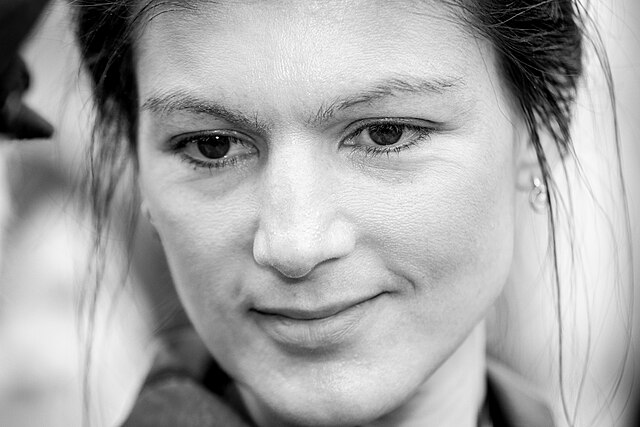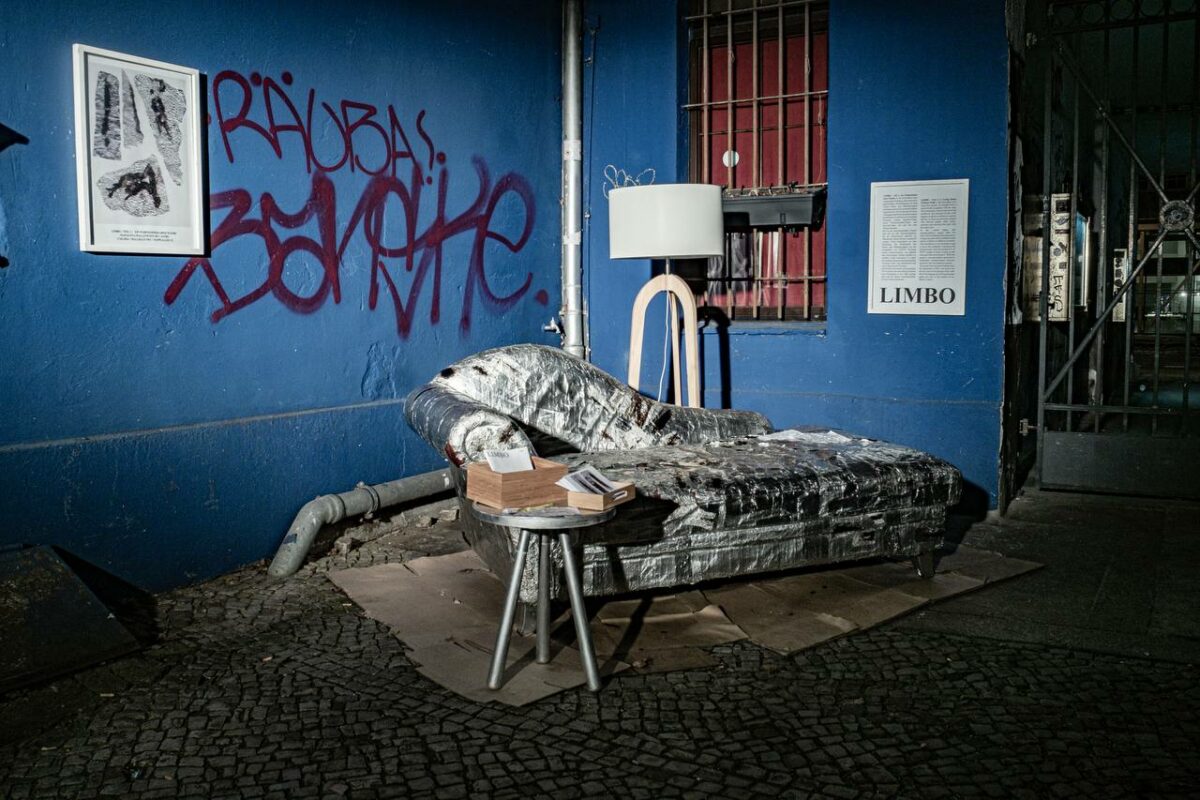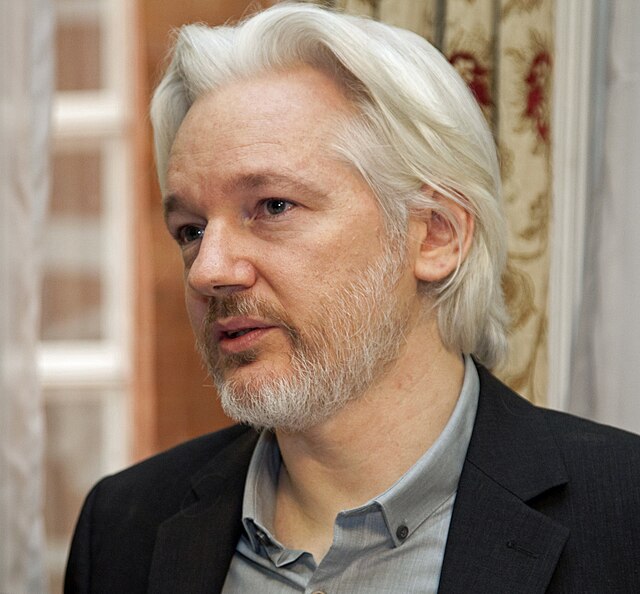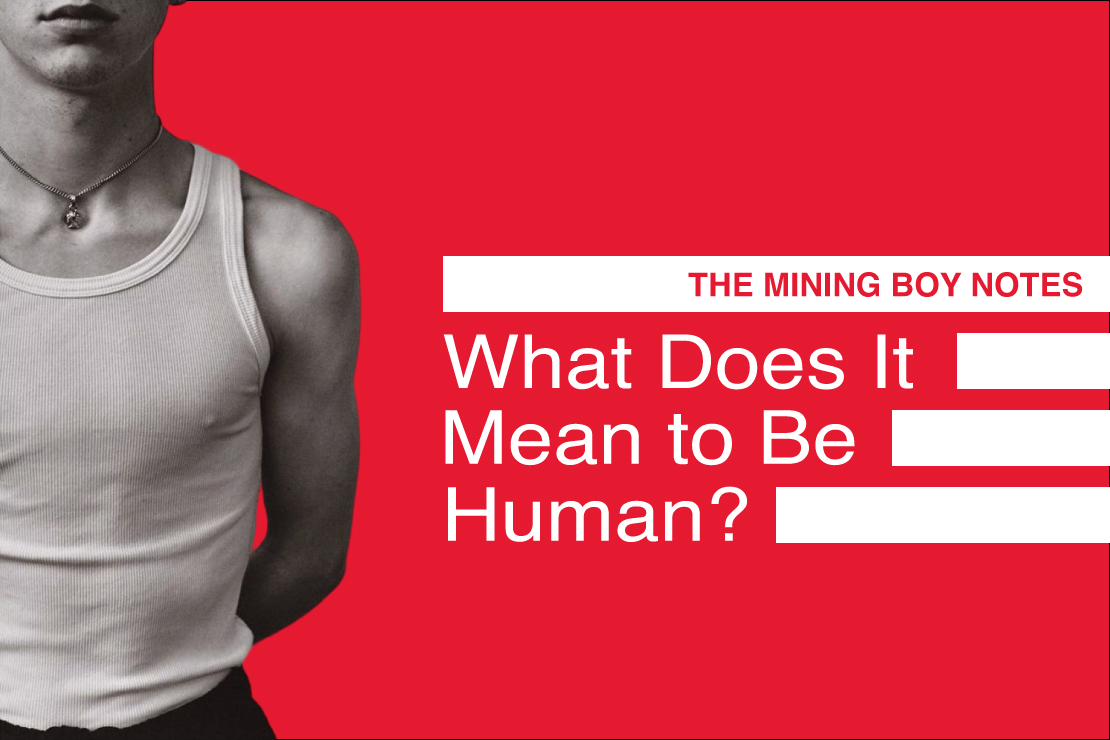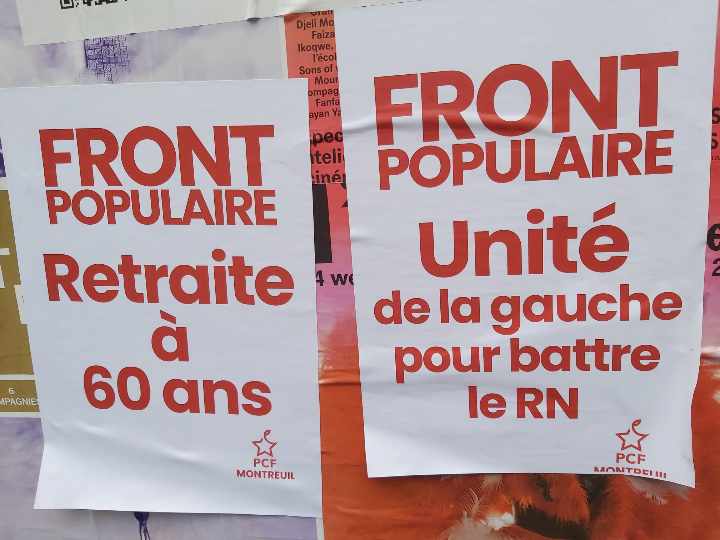The New Left Review’s recent decision to platform the German politician Sahra Wagenknecht has been controversial, to put it mildly. Wagenknecht’s party, the Bündnis Sahra Wagenknecht, breaks with much of the German political spectrum. Borrowing from the Left party, with whom she was formerly affiliated, she is vocally critical of neoliberal capitalism; she is also opposed to Germany’s growing role as an arms exporter. On immigration, on the other hand, she freely borrows from right-wing rhetoric, playing into traditional right-wing anxieties about “parallel societies”. Perhaps uniquely on the German political spectrum, Wagenknecht is entirely unafraid of being critical of Israel, calling out both German arms sales to Israel, and all the forms of state repression that critique of Zionism is met with in Germany. By claiming that her positions are consensus with the majority of Germans, Wagenknecht is able to position herself as a hypocrisy-free, tell-it-like-it-is politician, attracting voters from all over the spectrum. Wagenknecht’s 2024 EU electoral debut has been immensely successful: her party have secured 6.2% of the vote, compared to Die Linke’s dismal 2.7%.
***
The controversy around Wagenknecht being platformed by the NLR largely revolves around her active endorsement of socially conservative positions: on migration, on LGBT rights, on the environment. As with most such voices, she couches her positions in the language of Common Sense, and emphasises the need to “meet people where they are”. To some dubious credit, she is at least honest about holding these positions. Whether she sincerely subscribes to them, or merely adopts them as the authentic will of the German people, is as yet somewhat unclear.
On the face of it, Wagenknecht seems like a fairly run-of-the-mill right-wing cultural figure when she rants about the woke left (“lifestyle leftists”), playing up tired caricatures of the left as single-mindedly obsessed with virtue signalling over their hatred of cis white men. What Wagenknecht excels at, however, is couching her most reactionary political positions in left-wing language. Ultimately, this is what makes her dangerous. Today, the left is in deep crisis, and this crisis makes it easy to fall for simplistic narratives that promise easy solutions to capitalist stagnation. It is critical to look beyond these narratives to the reality of the world that politicians like Wagenknecht promise to build.
Wagenknecht’s linguistic sleight of hand is strongest when she talks about immigration, criticising migration systems under neoliberalism, rather than migrants. Her solution, of course, is tighter borders and better policing of migrants — the wholesale adoption of far-right policies. None of this is to say that critiques of migration under neoliberalism are automatically invalid; on the contrary, they grow increasingly relevant with capitalist decline and the climate crisis. Yet Wagenknecht, critiquing the “hollowness of neoliberal immigration policies”, blames these policies for open borders – a phenomenon that exists effectively nowhere. This is playing fast and loose with reality. Neoliberal migration systems, rather, tend to represent the exact opposite, being characterised by a selective permeability that deems certain forms of movement to be worth more than others. Migration under neoliberalism is managed to suit capitalist accumulation, to threaten wages, and – above all – to suppress labour movements through the enforcement of border regimes that leave migrants in a permanent state of fear for their legal status.
One of the unfortunate side-effects of neoliberalism being rather vaguely defined is that it allows Wagenknecht, like many of her contemporaries, to transform it from a set of economic and political decisions into a foil: defined as precisely that which she is not, rather than as an actually-existing-ideology. When Wagenknecht herself must adopt neoliberal positions, neoliberalism simply becomes something else.
Moving past the economic, Wagenknecht takes special exception to “parallel societies […] as in Sweden or France” describing her desire to “avoid a spiral of mutual distrust and hostility”. But this analysis of (German) society is deeply fatalistic, and ignores how societally conditioned xenophobia is, through a myriad cultural institutions. The assumption that there exists a bar beyond which societies are threatened by multiculturalism (and that Germany has approached this point) is based on false premises, both historically and geographically. Contemporary notions of ethno-cultural homogeneity are, by and large, a byproduct of the emergence of nation-states under capitalism. Ethnic homogeneity has simply never been the norm before the modern era. In a more contemporary context, it is important to highlight the source of German concerns around migration. At the peak of the refugee crisis, the city of Istanbul had more Syrian refugees than the entire European continent. This is not to say that Turkey has necessarily handled its own crisis particularly well — but the instinct to believe that Germany is “full” is not an organic one. Rather, these concerns are actively manufactured, by the likes of publications like Bild, and by the German political establishment, that has grown exceedingly comfortable with scapegoating Arab migrants as an intrinsically dangerous, antisemitic threat to German society.
Both Marxist and liberal theories of nationalism cite the utility of a homogenous national identity to a domestic bourgeoisie: it allows for the subjugation of the working class, under the belief that at least they are being oppressed by their people. This is a dynamic that Wagenknecht appears to be entirely comfortable with, when she refers to the opposition between smaller domestic firms and big MNCs, as “as important as the polarity between capital and labour.”
Wagenknecht is at least correct in pointing to the housing crisis being a major factor enabling contemporary German xenophobia. While the crisis is far from unique to Germany, the discourse surrounding the socialisation of housing and construction is perhaps better developed in Germany than anywhere else in Europe, due to the successes of Berlin’s Deutsche Wohnen & Co. Enteignen referendum bid. And while Wagenknecht has spoken positively of the campaign in the past, she has done so only in passing – a tweet here, an approving nod there. When the campaign is upheld as an example of successful organising and mobilisation on the left, she chooses – rather than trying to build momentum through their successes – to rant about the rest of the woke left.
Europe’s migration crisis is largely a housing crisis, a crisis that would remain even if migration were to reach a net zero. When Wagenknecht chooses to play up petty German nationalism, resorting to simplistic “fuck off we’re full”s rather than meaningfully address the very material stagnation in affordable housing, she is making a conscious choice – profits over people.
***
One might, at a stretch, be able to overlook Wagenknecht’s social chauvinism, were she committed to genuine leftist politics elsewhere. One could make the case that her social chauvinism is all an electoral ruse anyway. After all, people seem to be drawn to socially conservative positions in times of economic crisis, and if Wagenknecht truly believes that she can herald in an economic miracle, she might just be talking the talk. But Wagenknecht’s economic dreams are not going to usher in the era of growth she seems to believe they will. Far too often, she slips into the easy politics of nostalgia.
In the New Left Review, Wagenknecht comes across as particularly invested in upholding the idea of the German Mittelstand as the worthy capitalists of yore. To her, the Mittelstände would have generated economic splendour for Germany in perpetuity, were it not for the meddling neoliberals, the SPD. And here lies yet another of her fundamental misunderstandings of neoliberalism and its history. The deindustrialisation of western economies, the globalisation of supply chains, and the positioning of finance capital to capture value created within them has been part and parcel of capital’s renewed onslaught on labour in the global North, precisely encapsulated by neoliberalism. But the advent of neoliberalism was not a perversion of good, honest capitalism, imposed from above by evil, scheming politicians like Reagan or Thatcher (or Schröder in Germany, we are told). Rather, it was a natural response to a very genuine crisis in industrial capitalism. While the precise mechanisms and root causes of the crisis are subject to debate, the broader ideas are less controversial: the rapid growth of global industrial capacity and international competition led to a subsequent collapse in the prices of industrial goods, leading to shrinking rates of profit within the industrial sector, leading to the breakdown of the post-war compromise between capital and the labour movement.
Ultimately, it is historically and analytically incorrect to paint the processes of commodification and financialisation that neoliberalism represents, as being somehow dialectically opposed to industrial capitalism — they are two sides of the same coin, the coin being capital itself. The seemingly “clean” capitalism that existed in the post-war global North found material support in the subjection of the global South to a far dirtier, more expropriative capitalism. Neoliberalism represents the reflexisation, or the turning-inwards, of these very processes.
***
It is worth pointing out that Wagenknecht has simply never claimed to be an anticapitalist, and that her politics are, at best, a form of conservative social democracy. But the socdem fantasy to which Wagenknecht wishes to return is a relic of the past. Post-war Germany represented a very specific form of capitalist organisation, and while the titans of German industry sang the paeans of the Mittelstände for decades, contrasting them to large American conglomerates, these distinctions are meaningless in an era with globally collapsing profit rates and deindustrialisation. Wagenknecht points out, for instance, how German capitalists tended to reinvest their profits, rather than engage in stock buybacks. But in doing so, they were simply being rational economic actors in an era with sky-high returns on investment, and a captive American market for German products. Conflating this with some sort of moral superiority to modern corporations is absurd: we live in a very different economy today than we did even two decades ago.
Today, Wagenknecht seems to envision a world in which Chinese consumers, enticed by the brand value of German manufacturing, would act as another massive market for the goods that the Mittelstände pump out – all while Germany remains supremely unperturbed by Chinese industry. But brand value and intellectual property can only go so far. In an age of industrial overcapacity, price-based competition is inevitable, and China’s ability to leverage economies of scale, cheap wage labour, and increasing amounts of robotisation make one thing perfectly clear: capital has no use for German industrial expansion.
It is possible to take a charitable stance here and argue that Wagenknecht exaggerates her affinity for small business in an effort to attract votes. This is a failed strategy: her precious Mittelstände are far too wary of her, because they are genuinely rational actors who would happily abandon the “virtues” she ascribes to them in search of higher profits. Thus, if both her social and her economic positions are cynically embellished, what precisely remains? When all is said and done, Wagenknecht’s politics boils down to the politics of nostalgia—she scratches the itch longing for a return to the simpler era of the 70s, where men were men, the Bosch factory was the Bosch factory, and the only foreigners around were a few Gastarbeiter (emphasis on Gast). How do we engage with this fantasy?
A good start would be to acknowledge that these yearnings for the past will amount to very little. The post-war exception was the exception, and capitalism with a human face will not return to the west. Rather than ceding ground to the increasingly desperate efforts of social democrats to orchestrate the return of German industry under capitalist conditions, the left should spend its energies discussing liberation from the profit motive. The decommodification of housing provides an excellent starting point, considering how much work civil society has already put into it. Germany’s large-scale industrial transition to green energy, too, is critical: but the profit-driven German bourgeoisie have proven (and shall continue to prove) to be utterly useless at bringing about this transition.
***
The Antideutsch current of leftism is infamous in Germany for their subscription to very specific readings of Adorno and the Frankfurt School, bleeding into their seemingly unconditional solidarity with Israel and the United States of America. This has led to a uniquely German phenomenon, where parts of the left play up racist caricatures of Arabs as dangerous antisemites. One particular reading the Antideutsch subscribe to, building off the work of Canadian philosopher Moishe Postone, casts antisemitism as a form of foreshortened anti-capitalism—a rebellion against the abstract, against the domination of capitalist relations, combined with upholding, the honest, trans-historic nature of concrete industrial labour. In Nazi Germany, the former (through historical contingency) came to be personified by Jews, and the latter by Aryan Germans.
Postone’s analysis suffers from numerous stumbling blocks. Yet, his framing of this foreshortening of anti-capitalism is a useful analytical tool. Ultimately, capitalism represents a very specific mode of production, governed by the reduction of social labour into the value-form, with historically specific relations of production. The elimination of the “dishonest” spheres of capitalism will not lead to emancipation from capital, for these spheres are essential to capital in the first place, industrial or otherwise. Wagenknecht falls into precisely such a modern foreshortening of anti-capitalism, by centering her incomplete rebellion against a foggy neoliberalism instead of against the broader spectrum of capitalist relations themselves. Her cynical use of anti-migrant rhetoric to try to signal some grand exorcism of the spectre of this neoliberalism will not usher in a more “humane” capitalism. Instead, it merely serves to reinforce the far-right attribution of the evils of an increasingly brutal, expropriative capitalism onto the figure of the migrant. And in doing so, she pushes German society further onto dangerously thin ice.
(all direct quotes in this article are taken from the NLR interview)
